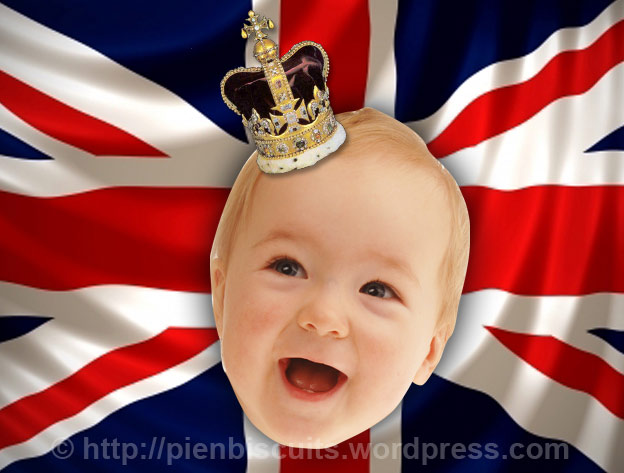Toddlers with guns kill more Americans than terrorists -

Americans hate terrorists and love our kids, right? So you might be shocked to know that preschoolers with guns have taken more lives so far this year than the single U.S. terrorist attack, which claimed four lives in Boston.
This is admittedly tongue-in-cheek, but one has to wonder if the NSA's PRISM program would have saved more lives had it been monitoring toddlers - or gun owners - rather than suspected terrorists.
11 Deaths in Five Months Where Shooter Was 3 to 6 Years Old
Listed below are the 11 gun fatalities I found where a preschooler pulled the trigger (from Jan. 1 to June 9, 2013). Starting with a list of five toddler shooting deaths The Jewish Daily Forward published in early May, I unearthed six additional cases. This tragic, unthinkable event has happened every month, like clock-work.
Jan. 10: 6-year-old playmate shoots and kills 4-year-old Trinity Ross, Kansas City, Kan.
Feb. 11: 4-year-old Joshua Johnson shoots and kills himself, Memphis, Tenn.
Feb. 24: 4-year-old Jaiden Pratt dies after shooting himself in the stomach while his father sleeps, Houston.
March 30: 4-year-old Rahquel Carr shot and killed either by 6-year-old brother or another young playmate, Miami.
April 6: Josephine Fanning, 48, shot and killed by 4-year-old boy at a barbecue, Wilson County, Tenn.
April 8: 4-year-old shoots and kills 6-year-old friend Brandon Holt, Toms River, N.J.
April 9: 3-year-old is killed after he finds a pink gun that he thinks is a toy, Greenville, S.C.
April 30: 2-year-old Caroline Sparks killed by her 5-year-old brother with his Cricket "My First Rifle" marketed to kids, Cumberland County, Ky.
May 1: 3-year-old Darrien Nez shoots himself in the face and dies after finding his grandmother's gun, Yuma, Ariz.
May 7: 3-year-old Jadarrius Speights fatally shoots himself with his uncle's gun, Tampa, Fla.
June 7: 4-year-old fatally shoots his father, Green Beret Justin Thomas, Prescott Valley, Ariz.
At least 10 more toddlers have shot but not killed themselves or someone else this year (see here, here, here, here, here, here, here, here, here and here). In the first three cases, the shooter was only 2 years old.
I also found nine instances where children and teens 7 to 19 years old accidentally killed themselves, a family member or friend since January (see here, here, here, here, here, here,here, here and here).
Of course, most if not all of the above deaths and injuries can be attributed to careless adult gun owners.
Read more -
http://www.sott.net/article/262876-Toddlers-with-guns-kill-more-Americans-than-terrorists?utm_source=dlvr.it&utm_medium=twitter

Americans hate terrorists and love our kids, right? So you might be shocked to know that preschoolers with guns have taken more lives so far this year than the single U.S. terrorist attack, which claimed four lives in Boston.
This is admittedly tongue-in-cheek, but one has to wonder if the NSA's PRISM program would have saved more lives had it been monitoring toddlers - or gun owners - rather than suspected terrorists.
11 Deaths in Five Months Where Shooter Was 3 to 6 Years Old
Listed below are the 11 gun fatalities I found where a preschooler pulled the trigger (from Jan. 1 to June 9, 2013). Starting with a list of five toddler shooting deaths The Jewish Daily Forward published in early May, I unearthed six additional cases. This tragic, unthinkable event has happened every month, like clock-work.
Jan. 10: 6-year-old playmate shoots and kills 4-year-old Trinity Ross, Kansas City, Kan.
Feb. 11: 4-year-old Joshua Johnson shoots and kills himself, Memphis, Tenn.
Feb. 24: 4-year-old Jaiden Pratt dies after shooting himself in the stomach while his father sleeps, Houston.
March 30: 4-year-old Rahquel Carr shot and killed either by 6-year-old brother or another young playmate, Miami.
April 6: Josephine Fanning, 48, shot and killed by 4-year-old boy at a barbecue, Wilson County, Tenn.
April 8: 4-year-old shoots and kills 6-year-old friend Brandon Holt, Toms River, N.J.
April 9: 3-year-old is killed after he finds a pink gun that he thinks is a toy, Greenville, S.C.
April 30: 2-year-old Caroline Sparks killed by her 5-year-old brother with his Cricket "My First Rifle" marketed to kids, Cumberland County, Ky.
May 1: 3-year-old Darrien Nez shoots himself in the face and dies after finding his grandmother's gun, Yuma, Ariz.
May 7: 3-year-old Jadarrius Speights fatally shoots himself with his uncle's gun, Tampa, Fla.
June 7: 4-year-old fatally shoots his father, Green Beret Justin Thomas, Prescott Valley, Ariz.
At least 10 more toddlers have shot but not killed themselves or someone else this year (see here, here, here, here, here, here, here, here, here and here). In the first three cases, the shooter was only 2 years old.
I also found nine instances where children and teens 7 to 19 years old accidentally killed themselves, a family member or friend since January (see here, here, here, here, here, here,here, here and here).
Of course, most if not all of the above deaths and injuries can be attributed to careless adult gun owners.
Read more -
http://www.sott.net/article/262876-Toddlers-with-guns-kill-more-Americans-than-terrorists?utm_source=dlvr.it&utm_medium=twitter


